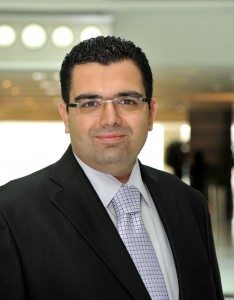The ideal home for Arab millennials
Mohamad Rabih Itani, managing partner at Property Inside, comments on the aspects that a real-estate developer should consider, to cater to the young Arab buyers.
Todays young Arabs, who belong to the 18-29 age group, have been dubbed as the ‘Arab Millennials’ and comprise
half of the Middle Easts population. They are a potent force in the region, where their perspectives and views seek relevance and demand more engagement from society at large. This generation has taken the spotlight in many social studies and has been known to be more interested in connecting with their peers through digital technologies.

Mohamad Rabih Itani
Research also shows that this generation creates their own ways. The way millennials are raised, the environment they are living in, and the rapid technological revolution in todays world call for real estate developers to build a niche product that adapts to the needs of Generation Y.
Here are 10 things developers may consider when building projects for the Arab Millennials:
1. Millennials, like other generations, will always be looking to upgrade their living situations. However, they would want to live a luxurious life while being able to afford it. They will seek communities where most facilities are available as a first step to meet their satisfaction.
2. Offering the necessities for raising a family will be a key factor for the success of any project. Developing projects near schools, hospitals, sports clubs, and play areas is necessary today. Both parents work; they want to make sure that their children are busy too.
3. Millennials will always believe that home ownership is a good investment. On the other hand, they want to make sure that this investment is as liquid as possible. Only well-located, well-designed, serviced, and high-quality projects deserve their appreciation.
4. Although they would want more space, millennials seek smartly-designed spaces in case of scarcity. In Saudi Arabia, for example, the sizes of houses have shrunk from an average of 420sqm to 220sqm in 10 years. Yet, it is still a house of three or four bedrooms. Millennials do not prioritise large spaces but rather a well-maintained home where they feel cozy.
5. Many millennials today are risk takers. So, they might think of needing an office at home. A good corner could be a selling tool.
6. While many millennials still want a car, there is a growing number of them who explore walking, commuting using various modes of transport, or cycling to work. Developers need to think of communities that are more walkable, with access to cycling facilities or car-sharing schemes.
7. They are nature lovers. Not all millennials are city-oriented unlike in the past generations where people thronged to the cities to live and work. Research has shown that millennials are ready to let go of city life for a less polluted environment. They would like to live in communities that value the presence of nature. The suburbs or newly-established cities are going to remain important destinations for young families. Communities that can
offer the best urban living with the best suburban setting could be a lottery-winning ticket for developers.
8. This tech-savvy generation naturally wants smart homes, always connected but not with wires entangled behind the TV screen.
9. Low maintenance and energy-efficient. Most young buyers will ask about the maintenance cost for their homes. If they are living in a community, they want to make sure that the community association is doing its best to preserve their living environment at an affordable cost. Most buyers are looking for energy-efficient homes to save big in the long run.
10. Millennials cannot immediately afford what they want and will have to work their way to achieve it, so developers must be ready to club with their offers the ideal financial solutions that cater to and match their capabilities. For millennials to be successful business owners, they want to live in a successful development. They will buy from credible and successful developers. This is why developers must prepare themselves and build a loyal customer base that will allow them to grow. If taken into consideration, we are likely to see a positive shift in the Arab housing market.
Mohamad Rabih Itani is the founder and partner of REPEC and partner at Property Insider, a Lebanon-based real estate advisory firm. He has around two decades of expertise in regional and international real estate.





